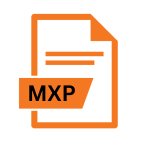.ACCDA File Extension

Access Add-in File
| Developer | Microsoft |
| Popularity | |
| Category | Plugin Files |
| Format | .ACCDA |
| Cross Platform | Update Soon |
What is an ACCDA file?
.ACCDA files are specifically associated with Microsoft Access, a part of the broader Microsoft Office suite.
They serve as add-in files within Access, enhancing its functionality by introducing custom features, tools, or functions tailored to the user’s requirements.
Essentially, these files extend the capabilities of Access beyond its standard offerings, catering to diverse needs ranging from data analysis to application development.
More Information.
The inclusion of add-ins in Microsoft Access dates back to its early versions, albeit in different formats. In Access 2007, Microsoft introduced the Access Add-in File (.ACCDA) format as a replacement for the earlier .MDA (Access Add-in) and .MDE (Access MDE Database) formats.
This transition marked a shift towards a more streamlined and secure approach to extending Access functionalities.
The primary purpose of .ACCDA files is to provide a means for encapsulating custom features or code snippets developed using Visual Basic for Applications (VBA) or other programming languages supported by Access.
These add-ins can range from simple utilities to complex modules, catering to a wide spectrum of user requirements.
Origin Of This File.
The genesis of .ACCDA files can be traced back to the evolution of Microsoft Access as a robust database management solution. With the growing demand for customization and flexibility, Microsoft introduced the concept of add-ins, allowing users to augment Access with additional functionalities developed either by Microsoft or third-party developers.
.ACCDA files emerged as a standardized format to package and deploy these add-ins seamlessly within the Access environment.
File Structure Technical Specification.
.ACCDA files adhere to a specific structure designed to ensure compatibility and reliability within the Access environment. These files are essentially compressed archives containing various components such as:
- Compiled Code: The main functionality of the add-in, typically written in VBA or other compatible languages, compiled into a binary format for execution within Access.
- Resources: This includes any additional files or resources required by the add-in, such as images, data files, or configuration files.
- Manifest: A metadata file specifying the details of the add-in, including its name, description, version, author information, and any dependencies.
The technical specifications of .ACCDA files are closely aligned with the underlying architecture of Microsoft Access and its compatibility with VBA. As such, developers working with .ACCDA files need to adhere to the guidelines and best practices recommended by Microsoft to ensure optimal performance and interoperability.
How to Convert the File?
Converting .ACCDA files to other formats is not a common practice, as these files are specifically tailored for use within the Microsoft Access ecosystem.
If the need arises to extract or convert the contents of an .ACCDA file for interoperability with other systems or applications, one approach is to:
- Extract Contents: Unpack the contents of the .ACCDA file using compression utilities like WinZip or 7-Zip, which can handle the ZIP archive format commonly used for packaging .ACCDA files.
- Review Components: Review the extracted components, including the compiled code, resources, and manifest file, to identify any elements that may be compatible with other systems or applications.
- Repackage as Needed: Depending on the target platform or requirements, repackage the extracted components into a suitable format or structure that aligns with the desired use case.
Converting .ACCDA files may not always be straightforward due to the specialized nature of their contents and intended usage within Access.
Advantages And Disadvantages.
Advantages:
- Enhanced Functionality: .ACCDA files enable users to extend the capabilities of Microsoft Access, empowering them to customize the platform according to their specific requirements.
- Reusability: Once developed, .ACCDA add-ins can be reused across multiple Access databases, promoting efficiency and consistency in application development.
- Modularity: By encapsulating functionalities into separate add-ins, developers can maintain a modular approach to application design, facilitating easier debugging, maintenance, and updates.
Disadvantages:
- Compatibility Issues: .ACCDA files may encounter compatibility issues when used across different versions of Microsoft Access or with databases containing conflicting add-ins.
- Security Concerns: While add-ins can enhance productivity, they also pose potential security risks if not adequately vetted or sourced from trusted providers. Malicious add-ins can compromise the integrity and security of Access databases.
- Complexity: Developing and managing .ACCDA add-ins requires a certain level of proficiency in programming and Access development, which may pose challenges for novice users.
How to Open ACCDA?
Open In Windows
- .ACCDA files can be opened directly within Microsoft Access by double-clicking on the file or through the Access application menu.
Open In Linux
- While Microsoft Access is not natively supported on Linux, users can explore compatibility options using Wine or virtual machines running Windows.
Open In MAC
- Users can access .ACCDA files using Microsoft Access for Mac, if available, or through virtualization solutions like Parallels Desktop or Boot Camp to run Windows-based Access environments.













